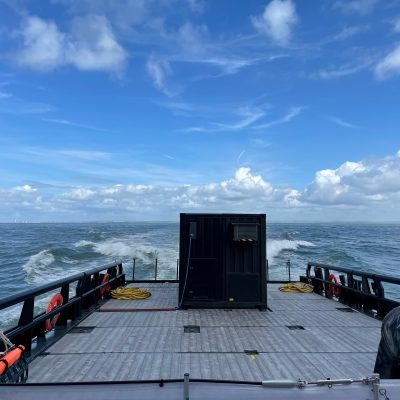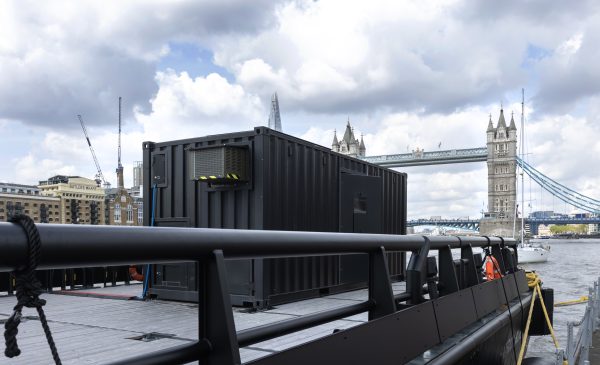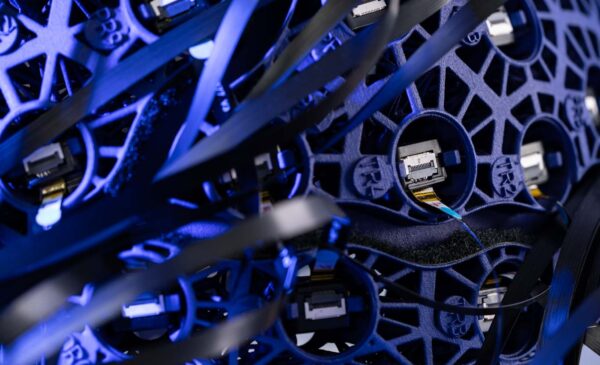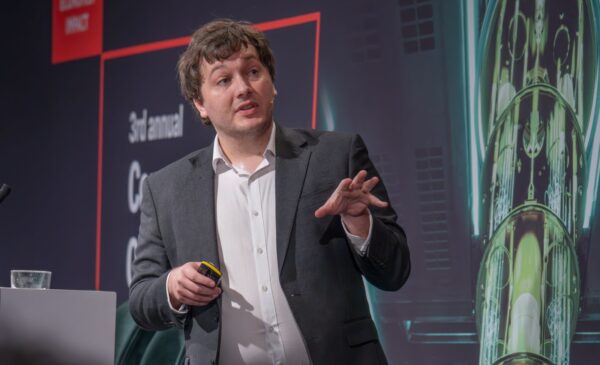A prototype quantum sensor with potential application in GPS-free navigation, built by UK Quantum Technology Hub Sensors and Timing researchers at Imperial College London, has been tested in collaboration with the Royal Navy. The test marks an important step in bringing new quantum technologies out of the lab and into real-world settings.
Many navigation systems today rely on global navigation satellite systems (GNSS), such as GPS, which uses signals from satellites orbiting the Earth. However, GPS navigation is not always accessible, obstacles like tall buildings can easily block the satellite signals, and they are also susceptible to jamming, imitation, or denial, thereby preventing accurate navigation. It has been estimated that a single day of satellite service denial would incur a cost of £1 billion to the UK.
Self-contained satellite-free navigation systems do exist; however, current technologies drift over time, meaning they lose accuracy unless regularly calibrated with satellites. The quantum sensor has the potential to remove this drift, significantly improving the accuracy over long timescales.
The Imperial College London team unveiled their first ‘quantum compass’ prototype in 2018 and have since been refining the technology to the point where it can now be tested in the field.
The latest Imperial quantum sensor was integrated into a Qinetiq NavyPOD – an interchangeable rapid prototyping platform, before setting sail to London aboard a new Royal Navy research ship the XV Patrick Blackett.

“Access to the Patrick Blackett provides us with a unique opportunity to take quantum sensors out of the lab and into the real-world environments, where they are needed.”Dr Joseph Cotter, lead scientist on the quantum sensor, Imperial College London
“Working with Imperial College London on this project has been an exciting and interesting opportunity for all of us. So far, the testing has gone well but the technology is still in its very early stages. It’s great to be a part of Royal Navy history.”Commander Michael Hutchinson, Commanding Officer of XV Patrick Blackett




